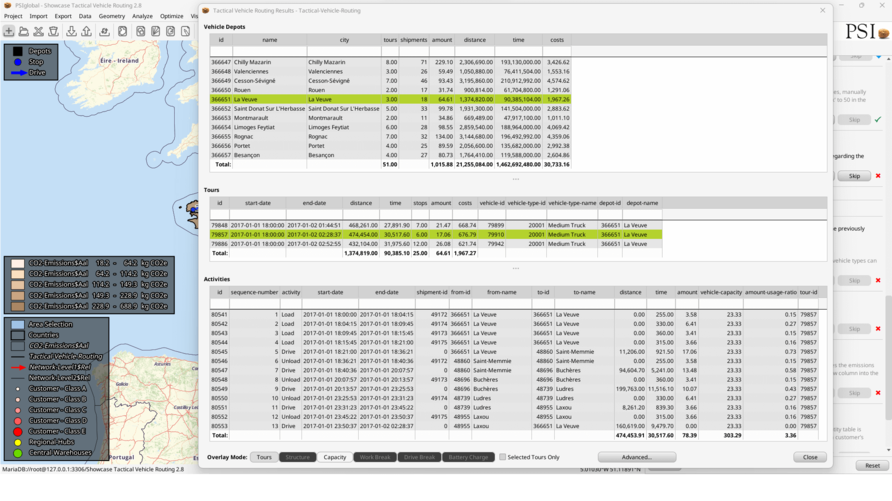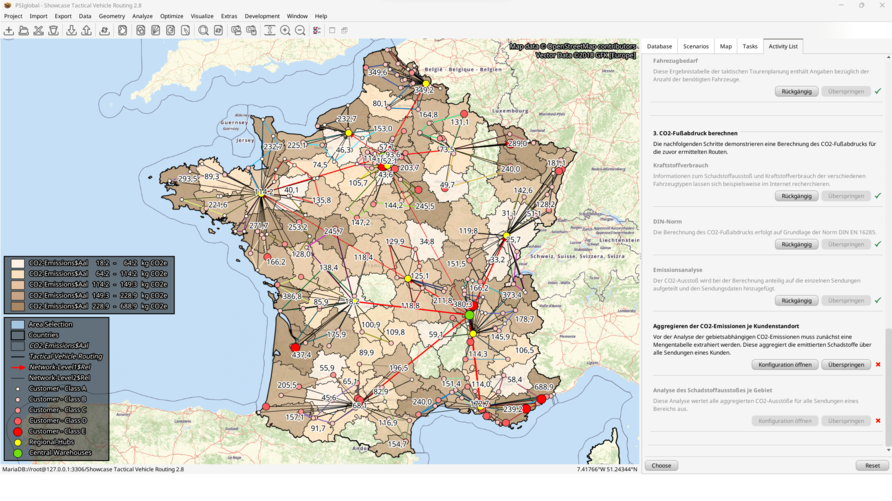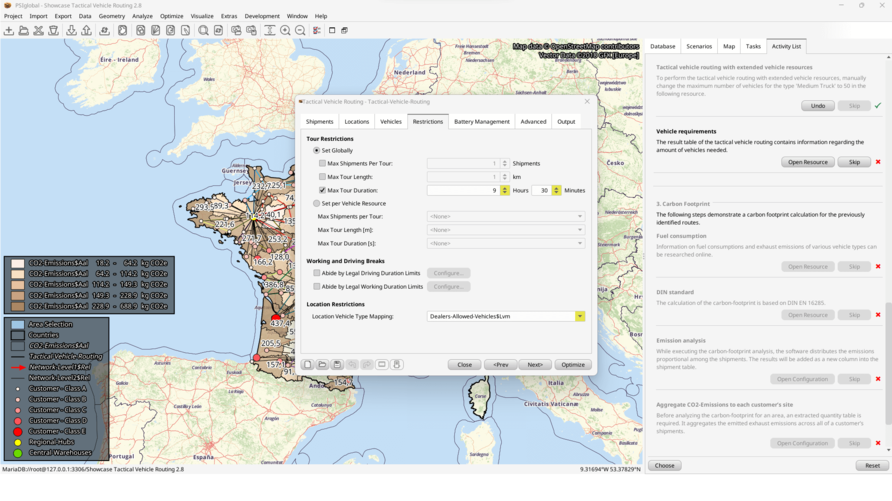Environmental responsibility and sustainability are decisive factors for companies' competitiveness. The logistics sector in particular, which is one of the biggest producers of CO₂ emissions, is under increasing pressure to make its processes more climate-friendly. The strategic planning of logistics networks and the optimization of the supply chain play a decisive role in this. The challenge: how can CO₂ emissions be reduced efficiently while ensuring cost efficiency and service quality?
The CO₂ footprint as a key factor in logistics
Reconciling environmental aspects and economic goals is a major challenge for many companies in the transport sector. A company's carbon footprint not only has a direct impact on its environmental footprint, but is also an increasingly important indicator of cost efficiency. High CO₂ emissions not only cause rising costs for CO₂ pricing, but also influence competitiveness, as customers increasingly value sustainable supply chains.
A particularly challenging aspect of emissions optimization is the transparent allocation of emissions to individual transport units and sections. If CO₂ emissions are recorded on a route basis without taking into account the actual utilization of the vehicles on the individual route sections, distortions arise. A transparent and fair allocation of emissions, ideally at shipment or item level, is an essential prerequisite for measuring and further optimizing the sustainability and efficiency of logistics. To do this, it is first necessary to determine all tours to be carried out, including all tour sections and activities, and to present them clearly.

Challenges in the precise allocation of emissions
DIN EN 16258 defines a standard for the calculation of greenhouse gas emissions and energy consumption in the transport sector and thus helps to standardize the measurement of CO₂ emissions in logistics. However, this poses a particular challenge: the exact calculation of emissions requires not only the recording of the route length, but also the consideration of the vehicle load and weight on each individual route section. This results in different emissions depending on the section and load status of the vehicles, which makes precise allocation difficult. This requires intelligent analysis tools that can make CO₂ emissions traceable both at route section and item level.
Another decisive factor in reducing CO₂ emissions is avoiding empty runs. Many companies are confronted with the fact that vehicles in direct load transportation return empty after a delivery. Efficient route planning, which also enables return loads (paired transports) or so-called triangular transports, helps to reduce transport kilometers and fuel consumption. This significantly reduces the carbon footprint and improves the cost efficiency of the supply chain at the same time.
CO₂ optimization through intelligent route planning
In practice, logistics companies are increasingly relying on precise and databased strategies to make their logistics more sustainable. One example of this is route planning in the French distribution area. In this scenario, consignments are distributed from two central warehouses to eleven regional warehouses in order to ensure comprehensive delivery to customers. The emissions are calculated according to vehicle type and load quantity and can be precisely allocated to each shipment based on the sections to be traveled. With the help of intelligent route planning, time and cost factors can also be taken into account, such as loading and unloading time windows, statutory rest periods and vehicle restrictions.
Emissions are calculated precisely in accordance with the DIN EN 16258 standard, using either the company's own consumption values or average reference values for vehicle types. Companies benefit from the option of analyzing emissions from vehicle use (tank-to-wheel) and emissions from energy generation (well-to-tank) and combining the resulting values at regional level, such as zip code areas. This flexible and detailed presentation helps to record emissions data transparently and to plan targeted reduction measures.

Sustainable supply chain network design
PSIglobal - the software for supply chain network design - is a solution that supports companies in precisely analyzing and specifically optimizing their carbon footprint. The system makes it possible to calculate emissions according to the aforementioned standards and display them at shipment or item level. The software offers comprehensive functions for tactical route planning and takes into account all relevant framework conditions, such as vehicle/loading space characteristics, loading point restrictions, loading times, driving and rest times and emission parameters for different fuel/energy types. A major advantage lies in the flexible planning: whether on the basis of fixed vehicle resources or by freely selecting the optimum number of vehicles for a tour - PSIglobal maximizes the use of resources and minimizes emissions.

Regulatory requirements such as the European Union's carbon border adjustment mechanism (CBAM) can also be incorporated into network planning at an early stage with PSIglobal. This reduces the reporting effort and future compensation payments - a valuable advantage for internationally operating companies.
PSIglobal shows that a targeted reduction of the CO₂ footprint in logistics is achievable. The software enables
- a detailed calculation of emissions,
- precise allocation at shipment and
- item level and the planning of resource-saving routes.
This achieves a balance between ecological responsibility and cost efficiency. PSIglobal helps companies to make their logistics processes sustainable and reduce costs at the same time.

